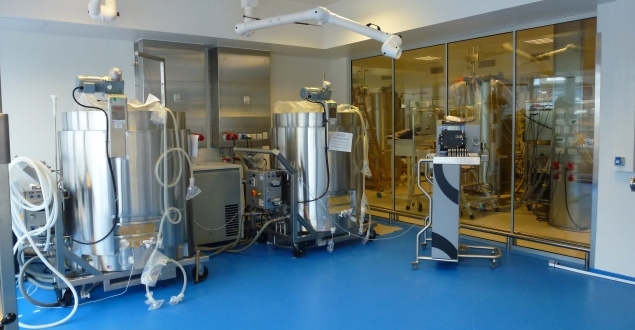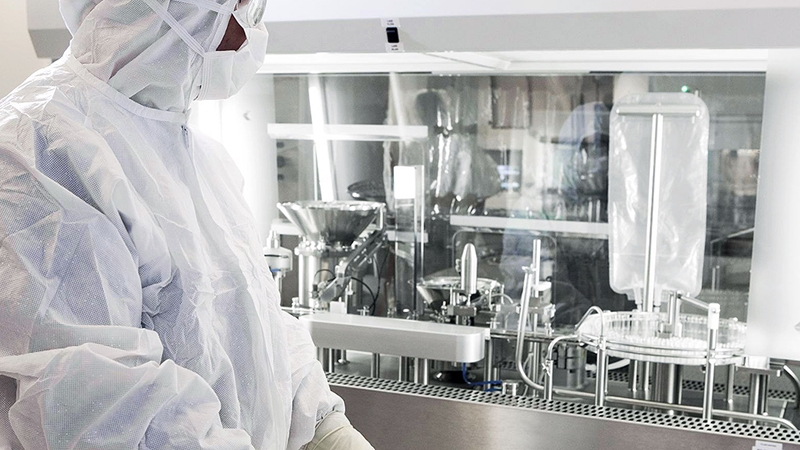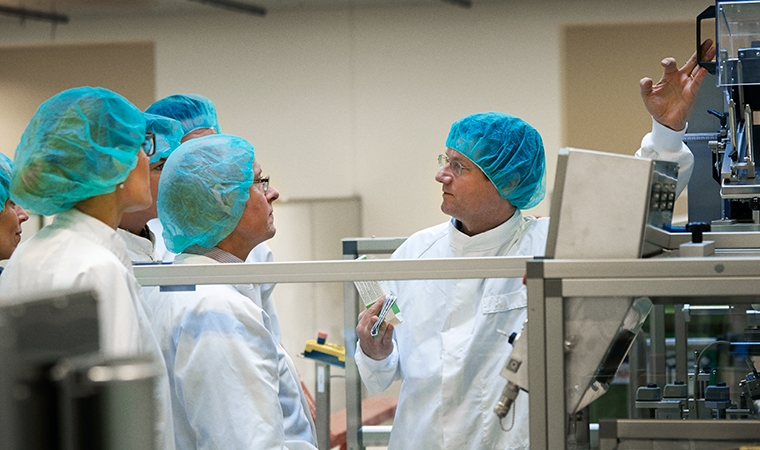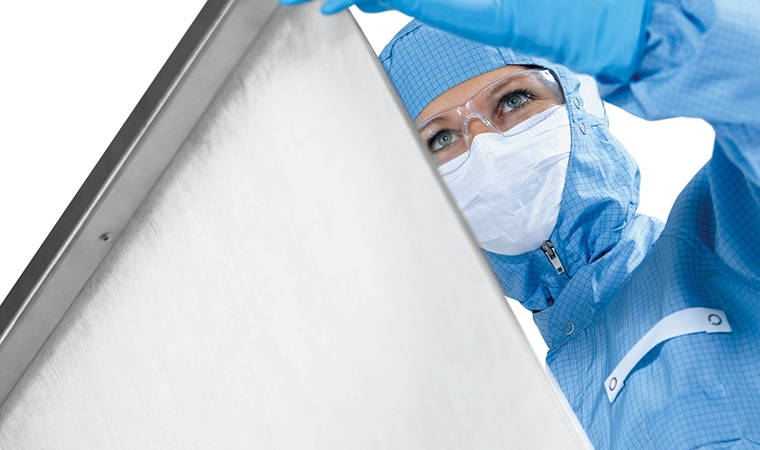NNE helped Novo Nordisk build its first facility based entirely on single-use technology, resulting in greater flexibility and lower costs.
Using plastic bags instead of steel tanks is essentially what single-use technology for pharmaceutical production is all about. The first Novo Nordisk facility to be based entirely on single-use technology is the 1T Extension Pilot Plant in Bagsværd, Denmark, which produces antibodies – and NNE has played a major role in making it happen. The project team handed over the project in February 2013. “It has been an ultra-fast-track project, which means that the schedule has been quite tight, but the end result was very good,” says NNE senior process engineer, Kim Vincentz Andersen.
Novo Nordisk needed to establish new production capacity that would enable it to meet increased market demand and support new products in the pipeline. The pilot plant also provided the company with extra capacity for supplying clinical trials and small-scale commercial production. The plant produces monoclonal antibodies (MAbs), which are typically used to treat cancer and inflammatory diseases such as Crohn’s, psoriasis and other autoimmune diseases.
We see single use as a good possibility for the future production technology in pilot scale. It provides great flexibility and lower investment costs and most likely also lower maintenance costs
A rising trend
Plants for the production of antibodies hold great significance for Novo Nordisk and, as an early cost-benefit analysis from NNE helped to reveal, turning to single-use technology provides many advantages for the company.
“We see single use as a good possibility for the future production technology in pilot scale. It provides great flexibility and lower investment costs and most likely also lower maintenance costs,” says project manager Lotte Vistisen Specht, Novo Nordisk.
Download our single-use newspaper
The need to bring low cost products to market at high speed and the increasing GMP requirements are core challenges for the pharma industry.
Single-use technologies can help improve site agility in this new pharma manufacturing reality.
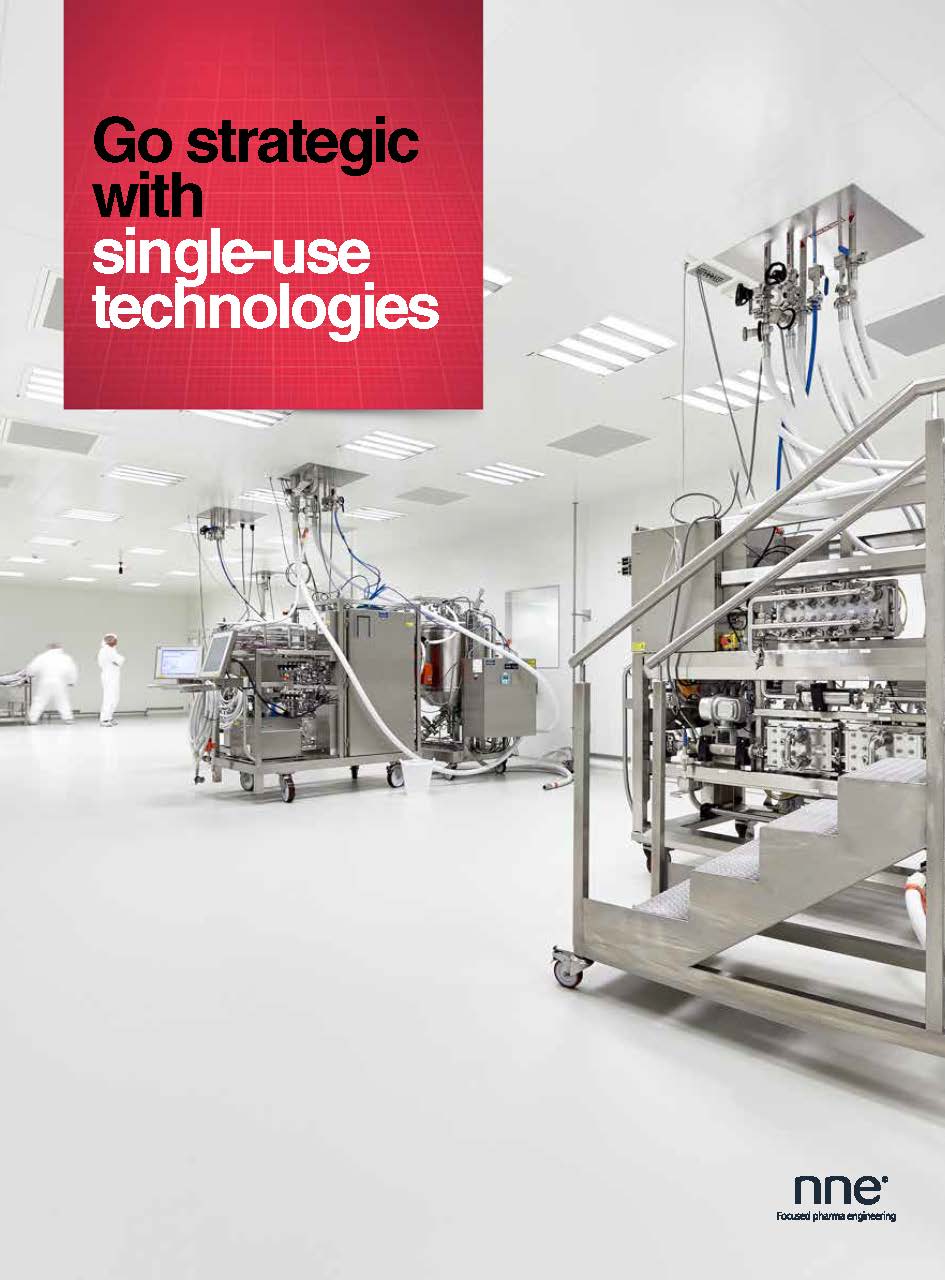
Of course, Novo Nordisk isn’t the only company that is aware of these advantages. Especially within biotech, going from multi-use technology to single use is a rising trend, according to global technology partner at NNE, Niels Guldager:
“It is a good solution for biotech because you are dealing with proteins in quite a safe process without high pressure or high acidity. The main advantage is that you reduce the risk of contamination because you only use the bags once. Installation costs are lower and, once installed, single-use technology frees up a lot of highly skilled manpower. The people previously involved with cleaning can now use their time elsewhere.”
No wasted water
Using disposable plastic bags rather than steel tanks might sound harsh on the environment, but the environmental reality of single-use technology is more nuanced than that.
“You have to compare it with what it replaces. The cleaning process with steel tanks requires vast amounts of hot water and is very energy-heavy, both when you heat the water and when you clean the wastewater afterwards. With single-use technology, you don’t need any water at all. And plastic actually burns rather cleanly,” says Niels Guldager.
NNE has a high level of expertise when it comes to single-use technology and caught on to the technology and its advantages very early on.
Quick facts
Customer
Novo Nordisk
Country
Denmark
Project duration
Dec. 2011 – Feb. 2013 (from detailed design to qualification)
Total investment cost
USD 13.9 million
Services provided
Concept brief, conceptual design, basic design, detailed design, engineering, procurement, construction management, commissioning and qualification
